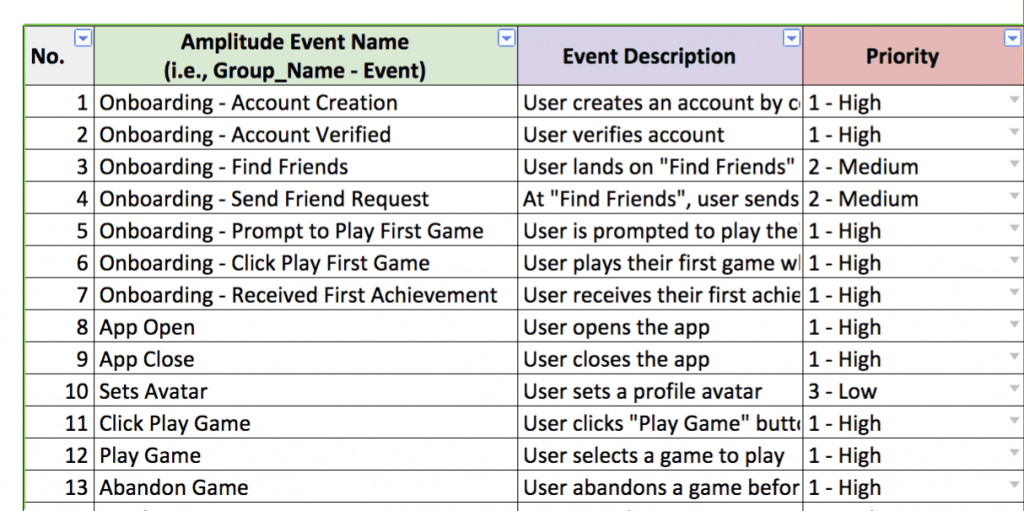Customer Success at Amplitude, a Guide for SaaS Companies
Our customers are part of the Amplitude family and their success is the most important factor when measuring our own success.
Our customers are part of the Amplitude family and their success is the most important factor when measuring our own success. As a result, our Success team takes a proactive approach in guiding our customers to identify and solve problems instead of relying purely on the reactive approach that has traditionally dominated SaaS.
For us, customer success is much more than responding to support tickets, and it even extends well beyond onboarding and product training: it’s a continuous one-on-one relationship with our customer.
For our first 40 enterprise customers, I was the sole member of the customer success team, and I could barely keep up with answering technical support emails, writing SQL queries, and doing some basic training for customers. Although I wanted Customer Success to mean partnering with our customers in helping them achieve their goals, I just didn’t have the bandwidth to take this proactive approach.
Luckily, in the past 9 months we’ve grown our Success team to 6 smart, enthusiastic, and hard-working Success Managers who work directly with our customers on a one-on-one basis.
More importantly, we’ve had a chance to really solidify our vision for the Success Team and develop some processes for maintaining communication and alignment with our customers. It’s a work in progress, but we now have a foundational framework for making sure our customers can successfully use Amplitude to meet their business goals.
The Customer Success Manager as an extension of the customer’s team
#dreamteam

We know what it’s like to spend thousands of dollars on a SaaS product and then basically be told: here are some docs, now go figure out the platform on your own. It’s a terrible feeling and we never want our own customers to feel that pain.
That’s why we’ve invested so many resources in our customer success team. Each customer’s Success Manager will be their primary point of contact throughout the entire customer lifecycle. We want our customers to view their Success Manager as an extension of their own team that is always there to help, give guidance as needed, and even write the occasional SQL query.
The customer’s voice in the product & engineering roadmap
Not only are Success Managers technical and capable of handling the majority of a customer’s tech questions, we play a pivotal role in product roadmap meetings and sprint planning sessions.
We “go-to-bat” for customers to ensure that the customer’s voice is heard, holding the company accountable for making sure we’re building a product that solves customer pain. Customers can reach out to their Success Managers at anytime with feedback, complaints, or questions, and it is our responsibility to track down the answers to questions if we don’t know the answer.
Our view of the relationship between Customer Success and Product/Engineering is reflected in our office layout as well. At Amplitude’s office, the Success team sits right next to the Engineering and Product teams. As a result, we’re constantly working directly with engineers to understand and resolve complex customer issues. Instead of technical questions going through a long chain of support tickets getting passed around, we can literally peek around a monitor and have a conversation with an engineer.
Onboarding is the most critical time period
We believe the most critical time in the customer relationship is during the onboarding phase. We want to make sure our customers are using Amplitude to get value in the fastest and easiest way possible.
Onboarding involves more than just some basic training on our platform. Even if customers know how to use Amplitude, that doesn’t necessarily help them achieve their business goals and desired outcomes (for example, improve user retention 10%). With that in mind, we’ve designed our onboarding phase to have five major touch points:
- Kickoff
- Events Taxonomy Review
- Data Validation
- General Training
- Deep Dive Session
Let’s take a look at each of these touch points, starting with the kickoff.
1. Kickoff
We welcome the customer to the Amplitude family by introducing their Success Manager and outlining the framework for the relationship.
Our objective at the end of this first meeting is to fully understand the customer’s business goals during the first 90 days. These goals could be understanding which behaviors are highly correlated with long term retention, or identifying the largest drop off in the onboarding funnel and increasing the conversion by 5%. By understanding these goals, the Success Manager can tailor product training and make sure the customer is able and on track to achieve their desired outcome.
2. Events Taxonomy Review
Sample Events Taxonomy template

For Amplitude, establishing the events taxonomy is the most critical step in getting started. The Events Taxonomy refers to the structure for setting up the events and properties that a customer will track in Amplitude, and thus lays the foundation for understanding their user data.
If events are improperly captured, the data is much less meaningful, and so much time is wasted having to go back and re-instrument. The goal of the events taxonomy review period is to ensure that our customers have a detailed plan to instrument events that will let them use our platform to the fullest capacity.
Often, we’ll download the customer’s app or play around with their product before this session, to get a good idea of which user actions are important and how we can best organize them. Then we guide the customer through a detailed template that helps them organize their events structure, providing suggestions based on the type of app and best practices.
3. Data Validation
Inevitably, there will be errors in the transition from a spreadsheet to actual code that results in improper instrumentation. Our Success Managers will test the instrumentation on their own devices and analyze the test data in our platform to ensure that the specs in the events taxonomy template were followed, and that everything is set up so that the customer can utilize analytics to the fullest.
4. General Training
We approach this session like teachers in a classroom. Our goal is to teach our customers the basic functionalities of the dashboard using their own data. We have them start exploring their own data and think about the questions they can answer through Amplitude.
Ultimately, we want to empower our users to leverage all the functionalities of our analytics platform so that they can make data-driven product decisions. Although many of our customers have used analytics before and are familiar with basic reports like funnels and retention, it’s important that we teach customers about our advanced features they might not be used to in other platforms — for example, using Microscope to save a Behavioral Cohort from a funnel drop off, using our raw SQL editor to write custom queries, or leveraging our Growth Discovery Engine to explore which events are most correlated with long term retention.
5. Deep Dive Session
The last touch point during our onboarding phase is designed to guide customers through how they can use Amplitude to achieve the business goals identified in the kick-off session. We lead customers through a step-by-step process, showing them how they can best use our features to find the right insights.
Maintaining the customer relationship
After the initial onboarding phase, we make sure to keep up with the customer with regular Health Checks and Quarterly Business Reviews. During these meetings, we evaluate current and future business goals, create a plan of action for the customer to achieve these goals (often this means scheduling specific trainings and deep dive sessions), and get feedback on the product as well as our roadmap.
Customers as partners
As a company, we believe that customer success is a partnership. We aren’t successful unless our customers can achieve their desired outcomes using our platform.
Our Success team is dedicated to empowering customers with user data in order to make smart product decisions. We take a proactive approach when working with customers and invest heavily in the onboarding period in order to make sure customers are on the road to success from the first day. Our talented Success Managers love sharing the wealth of knowledge they accumulate from their customers, and we’re constantly working to turn them into best practices from which all customers can benefit.
Want to join our Customer Success team?
Check out our open positions.

Alan Ibrahim
Former Director of Customer Success, Amplitude
Alan is Amplitude's former Director of Customer Success, where he lead our North American Success team. As Amplitude's first employee, he built out our Customer Success function from scratch!
More from Alan




